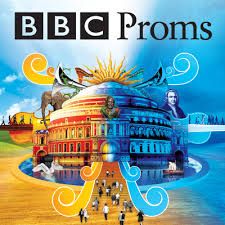 United Kingdom Prom 29. Mozart, Ravel, Messiaen and Stravinsky: Jean-Efflam Bavouzet (piano); BBC Philharmonic Orchestra/ Nicholas Collon (conductor), Royal Albert Hall, London, 7.8.2015 (AS)
United Kingdom Prom 29. Mozart, Ravel, Messiaen and Stravinsky: Jean-Efflam Bavouzet (piano); BBC Philharmonic Orchestra/ Nicholas Collon (conductor), Royal Albert Hall, London, 7.8.2015 (AS)
Mozart: Idomeneo – ballet music
Ravel: Piano Concerto in G
Messaien (orch. C. Dingle): Un oiseau des arbres de Vie (Oiseau tui)
Ravel (orch. C. Matthews): Oiseaux tristes
Stravinsky: Symphony in Three Movements
Ravel: La valse
Mozart’s ballet music for his opera Idomeneo is not heard very often in concert. I don’t think that the composer dug very deep into his fund of inspiration in order to supply the additional music for his first great opera, but it comprises an attractive collection of dances in the French style that made a pleasant, undemanding opening to the concert. The playing was alert and beautifully poised.
Jean-Efflam Bavouzet has an outstanding reputation as an interpreter of music from his native land, and expectations were high that he would bring exceptional qualities to his performance of Ravel’s Piano Concerto. These expectations were entirely realised. He did not in any way underplay the high spirits of the opening movement, with its jazzy syncopations, but he kept these elements within bounds and made the movement seem unusually classical in style through his aristocratic, ultra-sensitive delivery, and beautiful tone quality. We know that Ravel struggled long and hard to bring the long solo melody that opens the central Adagio movement into being, and Constant Lambert once commented on its “synthetic” quality. Bavouzet’s exquisite shaping of this melody made it seem entirely spontaneous in nature, and the orchestra’s delicate, sympathetic response contributed greatly to bringing out its rapt, inward nature to perfection. Then we heard a scintillating, scampering account of the finale, played with the utmost virtuosity by Bavouzet, yet still with elegance and refinement. The BBC Philharmonic gave precise, pithy support.
Messiaen’s last orchestral work, Éclairs sur l’au-Delà, was to have included a movement featuring the song of the New Zealand bird called the Tui, but having completed a short score he abandoned it. The Messiaen scholar Christopher Dingle has made an orchestral realisation of the piece, and this was its world premiere. Reference in the programme to a “unique performance” given with the permission of the Fondation Olivier Messiaen suggests that it may be difficult to hear the brief work again, which is a pity, since it is a remarkable tour de force of orchestral energy, with strikingly sharp, jabbing irregular accents. Dingle’s “realisation” seemed admirably faithful to Messiaen’s orchestral style, and it was played brilliantly.
Stravinsky’s Symphony in Three Movements received a lightweight performance. Though played with an easy virtuosity, the first movement sounded merely balletic in nature at Collon’s impatient, driving tempo: the music’s naturally stormy, menacing quality was quite lost. The inner movement should offer a contrast of quiet, gentle contemplation before the violence of the finale, but Collon pushed the music forward impulsively, and thus made it sound merely quirky and pretty. The last movement was again hurried along: we heard a fine display of precise, disciplined playing, but the music’s troubled, anxious, even anguished quality was completely missing. If anybody might wish to hear how this music should really sound they should listen to Stravinsky’s first (1946) recording of it with the New York Philharmonic Orchestra, made soon after they had given the premiere, and when the afterglow of creative inspiration was still very much present.
Colin Matthews has tried his hand at a number of orchestrations, including the both books of Debussy’s piano Préludes. It takes a certain amount of bravado to orchestrate a piano piece by a composer who was himself a master of orchestration, but who didn’t feel the need to clothe this piece in orchestral colours. “Oiseaux tristes” is the fourth of the piano set of Miroirs – Ravel did orchestrate the third, “Une barque sur l’océan” and the fourth, “Alborada del gracioso”, the latter to especially fine effect. Matthews’s orchestration of “Oiseau tristes” didn’t sound anything like the work of the master himself, and was ineffective.
Any fears one might have had after his Stravinsky that Collon would make La valse into a brash showpiece were unfounded. It was a measured, rich, delicately inflected account of the work that was entirely faithful to its ironic, nostalgic atmosphere. Only in the last few bars was Collon tempted to an overheated increase in tempo.
Throughout the evening the BBCPO played superbly, and fully justified its current reputation of being one of the UK’s finest ensembles.
Alan Sanders
